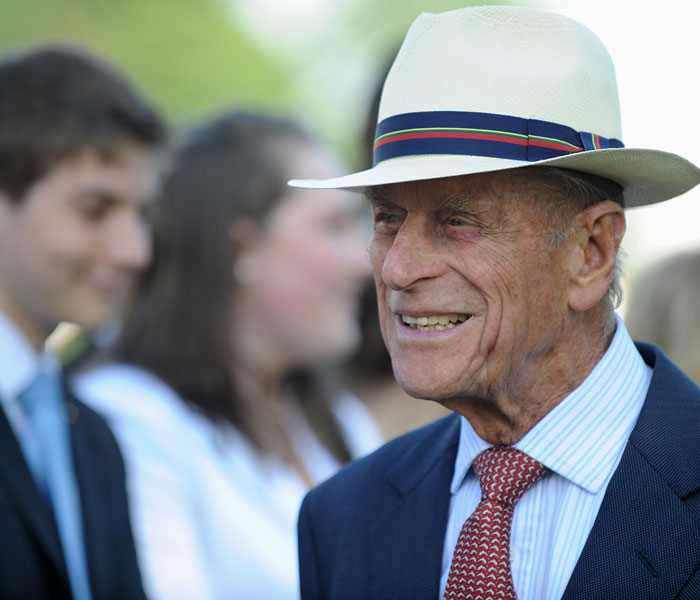
Howard Williamson
I first met Prince Philip almost 30 years ago. He was the opening speaker at a conference on ‘Teenagers at Risk in Britain Today’. I was the penultimate, de facto closing speaker on ‘Youth Policy’. I stood in line waiting to be introduced to HRH, sandwiched between Herman Ouseley, chair of the Commission for Racial Equality, and Sally Witcher, director of the Child Poverty Action Group.
I expected, as someone who at the time had little public status or recognition within the youth field, to be passed over pretty fast. I was told by a royal official, however, that the Duke had recently been reading some of my material and might well ‘have a few words’ with me. And this is exactly what he did, quizzing me on why I thought public (youth) policy had become so detrimental to young people and increased their social exclusion.
Little did I know that a decade later I would become a Trustee of the (UK) Duke of Edinburgh’s Award, though by then I was probably more prominent in the youth sector – in Wales, the UK, Europe and the wider world.
From then on, I met the Duke of Edinburgh in a variety of settings on a number of occasions. I recall, at the first Buckingham Palace garden party I attended, that he almost shouted at me for having not bothered to shave (I had been external examining half the night at the University of Hertfordshire and had had little sleep).
After that moment, however, relations were always more cordial – when I presented Gold Awards at St James’ Palace, he invariably thanked me profusely for ‘still giving time to my scheme’ or ‘still helping me to keep the show on the road’. He always had a slightly mischievous look on his face, within an appreciative smile.
In Edinburgh, on the 50th anniversary of the Award (2006), I had the opportunity to get the Duke a cup of tea and have ten minutes of ‘real’ conversation with him about the origins of the scheme. As a youth worker and historian of youth work, I really did want to know whether he had believed it would succeed. He had even been unsure whether or not it would benefit from his name but told me that Kurt Hahn had requested this and ‘would you have ever said no to your former headmaster?’. Prince Philip was evidently delighted that the scheme had survived its teething years and grown to be what it had become.
His do it yourself kit for growing up had met the test of time. This is exactly what I said many times in public speeches – the choices within the programme do keep up with the times but the framework, purpose and vision articulated by the Duke in the mid-1950s remain as relevant and pertinent as ever. Prince Philip’s engagement with the issues facing young people should never be underestimated.
As with Prince Edward, who has inherited the leadership of the Award, royal seclusion did not disconnect him from a sharp and informed awareness of the challenges facing young people, initially those just in the UK and increasingly those across the globe.
I had a private audience with the Duke in 2017 and we batted some burning youth issues between us for half an hour. I left feeling like a student again, having been tested on the strength and plausibility of my perspectives.
There was, of course, always the humour. Quite by chance, at the opening of the refurbished Award House, I was standing close to the Duke when he turned and I caught his eye, leading him to smile towards me and state that it would soon be time for the ‘world’s most experienced plaque unveiler’ to do his duty.
He might possibly have said this on many occasions before, though I had not heard it reported and it certainly made me smile; that self-effacing manner was an often unacknowledged characteristic. More common were the so-called ‘gaffs’ and I was within earshot at the opening of the Welsh Assembly in 1999 when he made one of them. But they were the comments of a man of a certain age and of a certain class. I can certainly forgive such moments. And, beyond the media coverage, I know little about the military and sporting achievements for which he is also remembered.
For me, his lasting legacy is the Award. Having served as a UK Trustee for 12 years, I have now been a Trustee of International for five years, and I continue to beat the drum across the terrain of youth policy about avoiding reinventing the wheel, but if there is an insistence – by the new brooms in both government and NGOs - on doing so, please make sure it’s round.
The Duke of Edinburgh, together with Kurt Hahn and John Hunt, established a rounded out-of-school programme for young people that is complex only in its simplicity in recognising the importance of both a breadth and depth of non-formal education and learning opportunities and experiences in the personal development of young people – skills, new horizons, competence and confidence for their individual, family and civic lives.
There is no need to reinvent the wheel. In post-Covid days, the imperative is to connect this programme to stand alongside formal education as the engine to drive young people’s contribution to ‘building back better’. The Duke would always have been the first to suggest that the Award has always been flexible enough to adapt to changing circumstances and, simultaneously, robust enough to withstand corrosion from the vicissitudes of incessant policy change.
On the passing of Prince Philip, the Duke of Edinburgh’s Award may now have new custodians, but the influence of its Founder will live on.
Howard Williamson
Professor of European youth policy at the University of South Wales
Trustee, UK DofE 2003-2016 and International Award Foundation
I expected, as someone who at the time had little public status or recognition within the youth field, to be passed over pretty fast. I was told by a royal official, however, that the Duke had recently been reading some of my material and might well ‘have a few words’ with me. And this is exactly what he did, quizzing me on why I thought public (youth) policy had become so detrimental to young people and increased their social exclusion.
Little did I know that a decade later I would become a Trustee of the (UK) Duke of Edinburgh’s Award, though by then I was probably more prominent in the youth sector – in Wales, the UK, Europe and the wider world.
From then on, I met the Duke of Edinburgh in a variety of settings on a number of occasions. I recall, at the first Buckingham Palace garden party I attended, that he almost shouted at me for having not bothered to shave (I had been external examining half the night at the University of Hertfordshire and had had little sleep).
After that moment, however, relations were always more cordial – when I presented Gold Awards at St James’ Palace, he invariably thanked me profusely for ‘still giving time to my scheme’ or ‘still helping me to keep the show on the road’. He always had a slightly mischievous look on his face, within an appreciative smile.
In Edinburgh, on the 50th anniversary of the Award (2006), I had the opportunity to get the Duke a cup of tea and have ten minutes of ‘real’ conversation with him about the origins of the scheme. As a youth worker and historian of youth work, I really did want to know whether he had believed it would succeed. He had even been unsure whether or not it would benefit from his name but told me that Kurt Hahn had requested this and ‘would you have ever said no to your former headmaster?’. Prince Philip was evidently delighted that the scheme had survived its teething years and grown to be what it had become.
His do it yourself kit for growing up had met the test of time. This is exactly what I said many times in public speeches – the choices within the programme do keep up with the times but the framework, purpose and vision articulated by the Duke in the mid-1950s remain as relevant and pertinent as ever. Prince Philip’s engagement with the issues facing young people should never be underestimated.
As with Prince Edward, who has inherited the leadership of the Award, royal seclusion did not disconnect him from a sharp and informed awareness of the challenges facing young people, initially those just in the UK and increasingly those across the globe.
I had a private audience with the Duke in 2017 and we batted some burning youth issues between us for half an hour. I left feeling like a student again, having been tested on the strength and plausibility of my perspectives.
There was, of course, always the humour. Quite by chance, at the opening of the refurbished Award House, I was standing close to the Duke when he turned and I caught his eye, leading him to smile towards me and state that it would soon be time for the ‘world’s most experienced plaque unveiler’ to do his duty.
He might possibly have said this on many occasions before, though I had not heard it reported and it certainly made me smile; that self-effacing manner was an often unacknowledged characteristic. More common were the so-called ‘gaffs’ and I was within earshot at the opening of the Welsh Assembly in 1999 when he made one of them. But they were the comments of a man of a certain age and of a certain class. I can certainly forgive such moments. And, beyond the media coverage, I know little about the military and sporting achievements for which he is also remembered.
For me, his lasting legacy is the Award. Having served as a UK Trustee for 12 years, I have now been a Trustee of International for five years, and I continue to beat the drum across the terrain of youth policy about avoiding reinventing the wheel, but if there is an insistence – by the new brooms in both government and NGOs - on doing so, please make sure it’s round.
The Duke of Edinburgh, together with Kurt Hahn and John Hunt, established a rounded out-of-school programme for young people that is complex only in its simplicity in recognising the importance of both a breadth and depth of non-formal education and learning opportunities and experiences in the personal development of young people – skills, new horizons, competence and confidence for their individual, family and civic lives.
There is no need to reinvent the wheel. In post-Covid days, the imperative is to connect this programme to stand alongside formal education as the engine to drive young people’s contribution to ‘building back better’. The Duke would always have been the first to suggest that the Award has always been flexible enough to adapt to changing circumstances and, simultaneously, robust enough to withstand corrosion from the vicissitudes of incessant policy change.
On the passing of Prince Philip, the Duke of Edinburgh’s Award may now have new custodians, but the influence of its Founder will live on.
Howard Williamson
Professor of European youth policy at the University of South Wales
Trustee, UK DofE 2003-2016 and International Award Foundation


